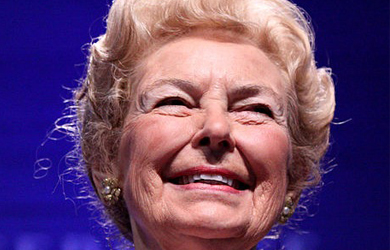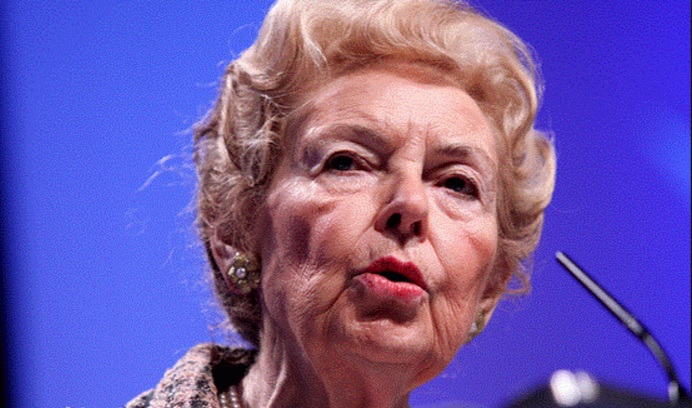Eagle Forum founder Phyllis Schlafly appeared on “Secure Freedom Radio” with Frank Gaffney last week to point the blame at undocumented immigrants for increasing the national debt, overburdening social welfare programs and inciting a health crisis in the United States.
To supposedly remedy these issues, Schlafly called for a moratorium on immigration, arguing that the most recent waves of immigrants aren’t willing enough to integrate into American society. “The American people want the borders closed and we need a pause in our immigration. That’s what happened after the big immigration of the 1920s,” she said. “We had a pause and they all assimilated and they learned English and they learned to adapt to American ways. But the people coming in now, it’s not even clear they want to be Americans.”
She said that she learned from Rep. Michele Bachmann that the border is insecure and that “there’s no fence, they’re bringing in all kinds of disease and Obama’s not doing anything to stop it.”
Schlafly added that “a lot of these so-called kids who are coming in” are “tough cookies.”
Schlafly breathlessly described a scenario in which the knee-jerk dependency of immigrants on federal assistance programs would cripple the economy.
“They’re people who have no understanding or familiarity with the concept of limited government,” she added. “When you let these people in who will immediately go on the welfare system — you know, the Boston bombers came in, went right on the welfare system. That’s the reason for the enormous spending and debt we have, because we keep bringing in people who really can’t support themselves.”
Schlafly brought up her childhood during the Great Depression — arguably an era that saw one of the largest periods of federal government intervention — claiming that Americans were resilient enough to fend for themselves and didn’t need to seek out government aid. “[Immigrants] expect big government to take care of them, to solve their problems, and that’s not the way most Americans think,” she said.
“I grew up during the depression, and we didn’t look to government to solve our problems. And we grew up to be what they called the Greatest Generation.”






